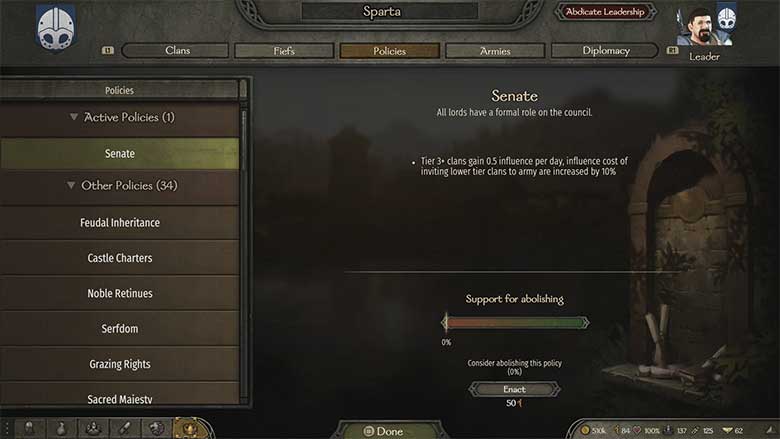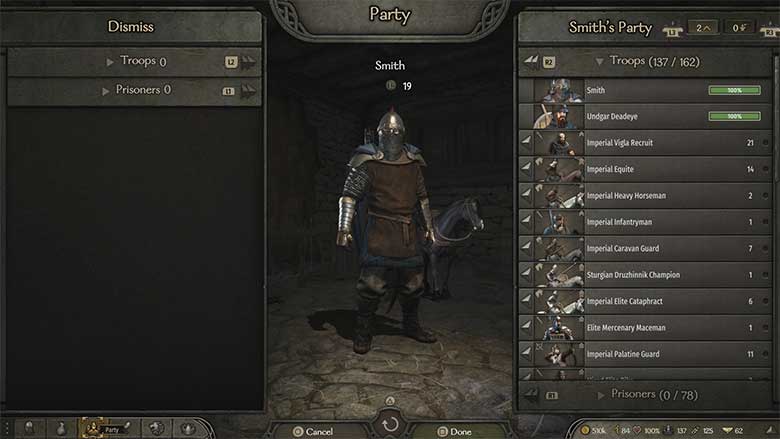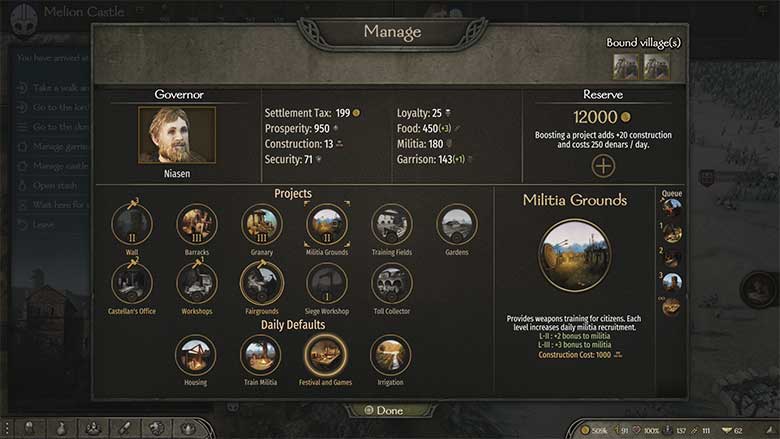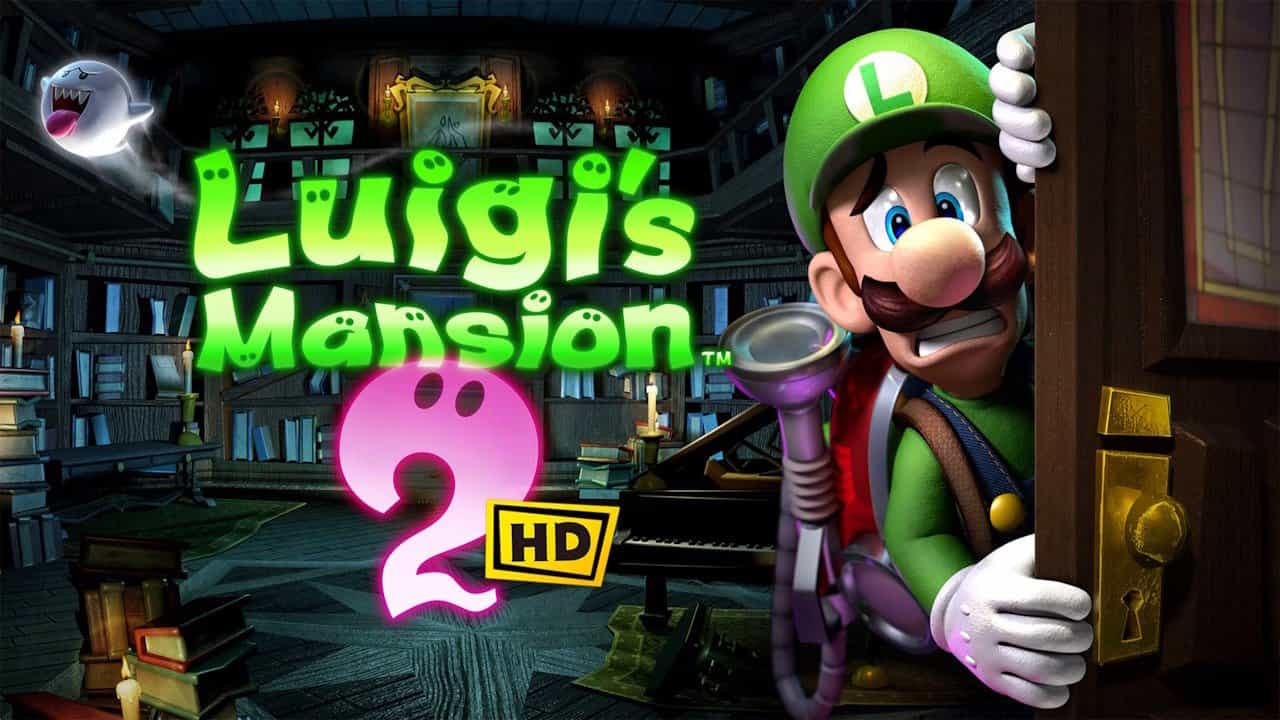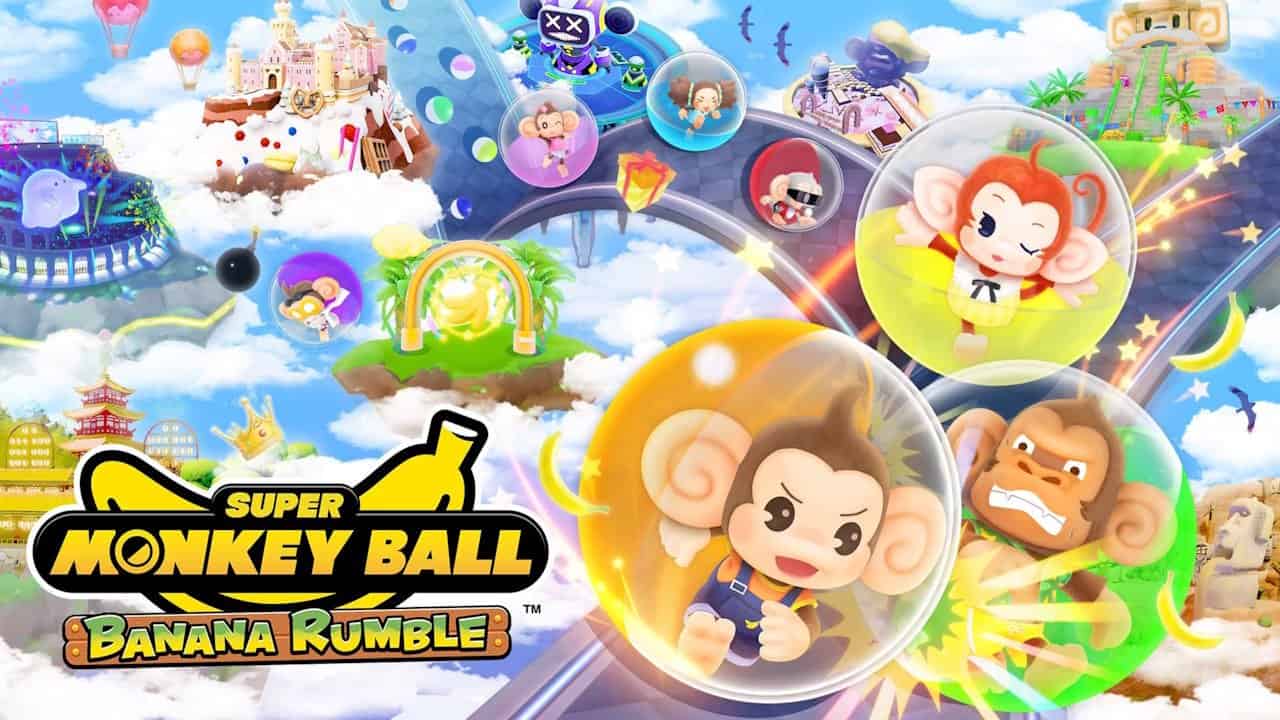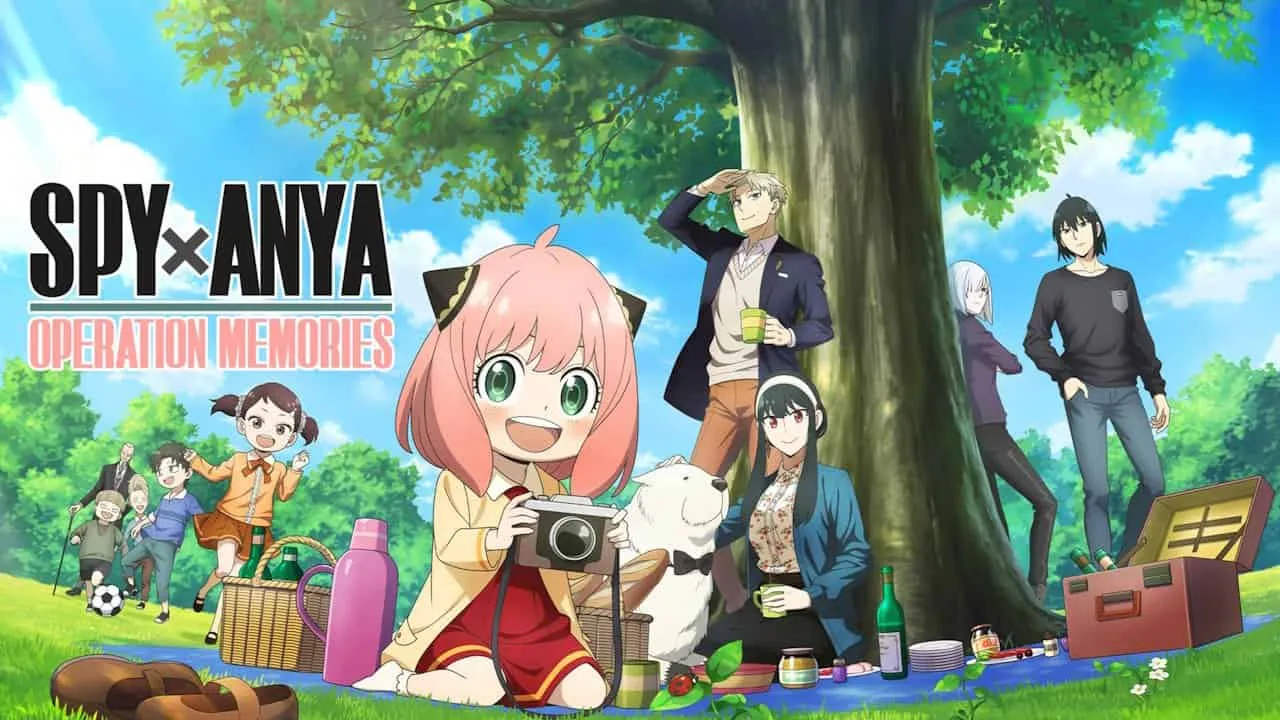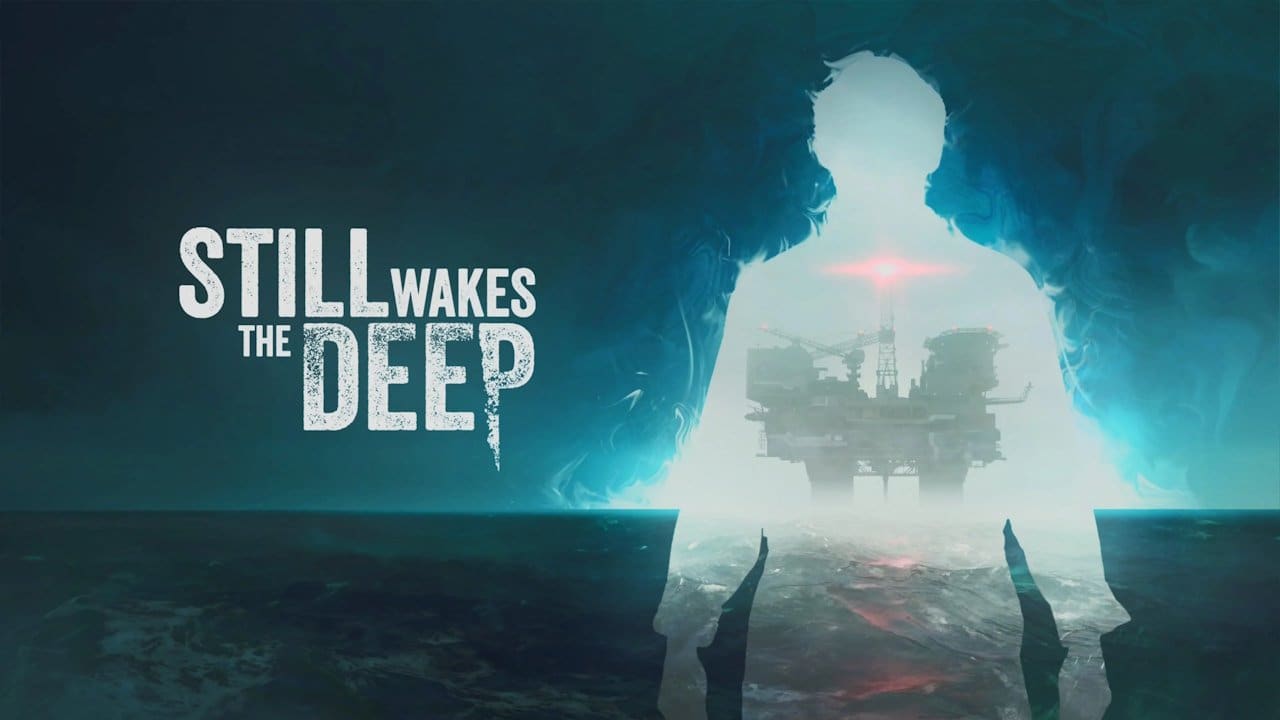Mount & Blade II: Bannerlord Review

Official Score
Overall - 85%
85%
There is no other game like Mount & Blade II: Bannerlord. It's a fantastic experience, one unique in the gaming space. The constant grind to manage and progress with your kingdom is hard work - really hard work - but the payoff is spectacular. This is not a game for everyone but if this is your kind of thing, you're going to love every blood-stained minute of it.
TaleWorlds Entertainment once again brings the medieval era to life with the RPG-strategy hybrid Mount & Blade II: Bannerlord. Building on the incredible success of the original game, Mount & Blade II: Bannerlord looks to improve on its predecessor in every way, but does it do enough to justify the price tag of a new release?
Mount & Blade II: Bannerlord Review
Mount & Blade II: Bannerlord is a unique sort of beast, as there are very few games that play in a similar fashion. It boasts the large-scale tactical battles from games like Total War, with a political landscape more often seen in 4X games, all wrapped up in an RPG package with character progression, relationships, army management.
Put simply, it’s a lot to take in.
And that right there is the first and major barrier to entry. Mount & Blade II: Bannerlord is not for everyone – far from it – but it’s not trying to appeal to the masses. It wants to carve out its own niche and it does so in spectacular fashion, even if some parts of the game feel as archaic as the medieval weaponry you use to dismember your enemies.
The earlier hours of Mount & Blade II: Bannerlord are the very best the game has to offer. You start by creating your own lord, a character that evolves and progresses as you journey through the game, before setting up to mark your stamp upon the lands. You’ll begin by doing basic RPG style fetch quests. A small town will ask you to take some cattle to distant lands to sell, a town has issues with rival gangs and needs a strong hand to find the solution, or maybe you buy enough horses to carry a small keeps worth of goods and you begin trading your way to fortune.
This, for me, is the most exciting part of the game. It’s when the most paths are available to you. You can be a rogue, a trader, a mercenary…your outgoings are small and your potential limitless. As you progress further into the game, those options become less and less efficient and you begin relying on singular methods to manage your growing economy. Typically, making new weapons and defeating enemy armies offer far greater benefits that owning crafting shops and paying to protect your caravans. In a world that boasts near endless potential at the beginning, it quickly funnels you into particular avenues.
Mount & Blade II: Bannerlord is a beast; it’s huge. The game world is massive, the mechanics complex, and the tutorial lacking. There’s an in-game encyclopedia that provides small hints on different features and how they work, but it’s very lacking. You’ll be spending a lot of time searching up various aspects of the game and while I’d often find this distracting from the overall experience, there’s a lot of satisfaction from navigating the games various complexities and coming out on top.
The complexities and challenges grow as you progress through the game. In the earlier days you’re simply managing you and a small band of troops. As you complete quests, ally with other factions, your responsibilities and opportunities expand exponentially. You can play through dozens of hours just slaughtering enemy armies and building up a fortune but eventually you’ll form your own kingdom or ally with another.
It’s an exciting and engaging feature, having your own towns and villages to protect, kingdoms to manage, and castles to garrison. It’s a lot of fun at first but it does become quite exhausting. Managing a single characters progression tree is great but once you have half a dozen kids, a dozen companions, managing each of their skill trees and equipment becomes really tiresome. Much can be said for the political landscape. You can pay ransom to save the leader of an entire kingdom and nobody seems to notice. Other times, a group you considered allies will declare war.
Mount & Blade II: Bannerlord’s combat is one of its greatest assets, but it’s one you’ll find yourself avoiding more times than not. Battles can be long as you navigate poorly designed console controls, sluggishly trying to give your troops orders as the cavalry charge your front-line. It takes a few hours to get used to ordering your troops around, changing formations, retreating, and charging the flanks. On the surface, it’s a rewarding combat system that looks to rival the like of Total War. However, the longer you play, the more the numbers do the hard work.
Troops are so easily available and with the battles so long, it makes more sense to automate the combat and just replenish the troops you’ve lost – engaging with smaller armies to give your new troops experience; rinse and repeat. It blends in together perfectly with the grindy nature of the games other progressive systems. However, when you’re not automating the destruction of dozens of enemy armies, the large-scale battles are a sight to behold.
The graphics and performance are fantastic for this many units on-screen and when you enter a battle outnumbered two to one, and still pull off the W, it’s an incredible feeling. Whether sieging towns and castles or defending your allies from ambushes, thematically the game is an absolute wonder but sometimes the execution feels a little harsh.
There is no other game like Mount & Blade II: Bannerlord. It’s a fantastic experience, one unique in the gaming space. The constant grind to manage and progress with your kingdom is hard work – really hard work – but the payoff is spectacular. This is not a game for everyone but if this is your kind of thing, you’re going to love every blood-stained minute of it.
